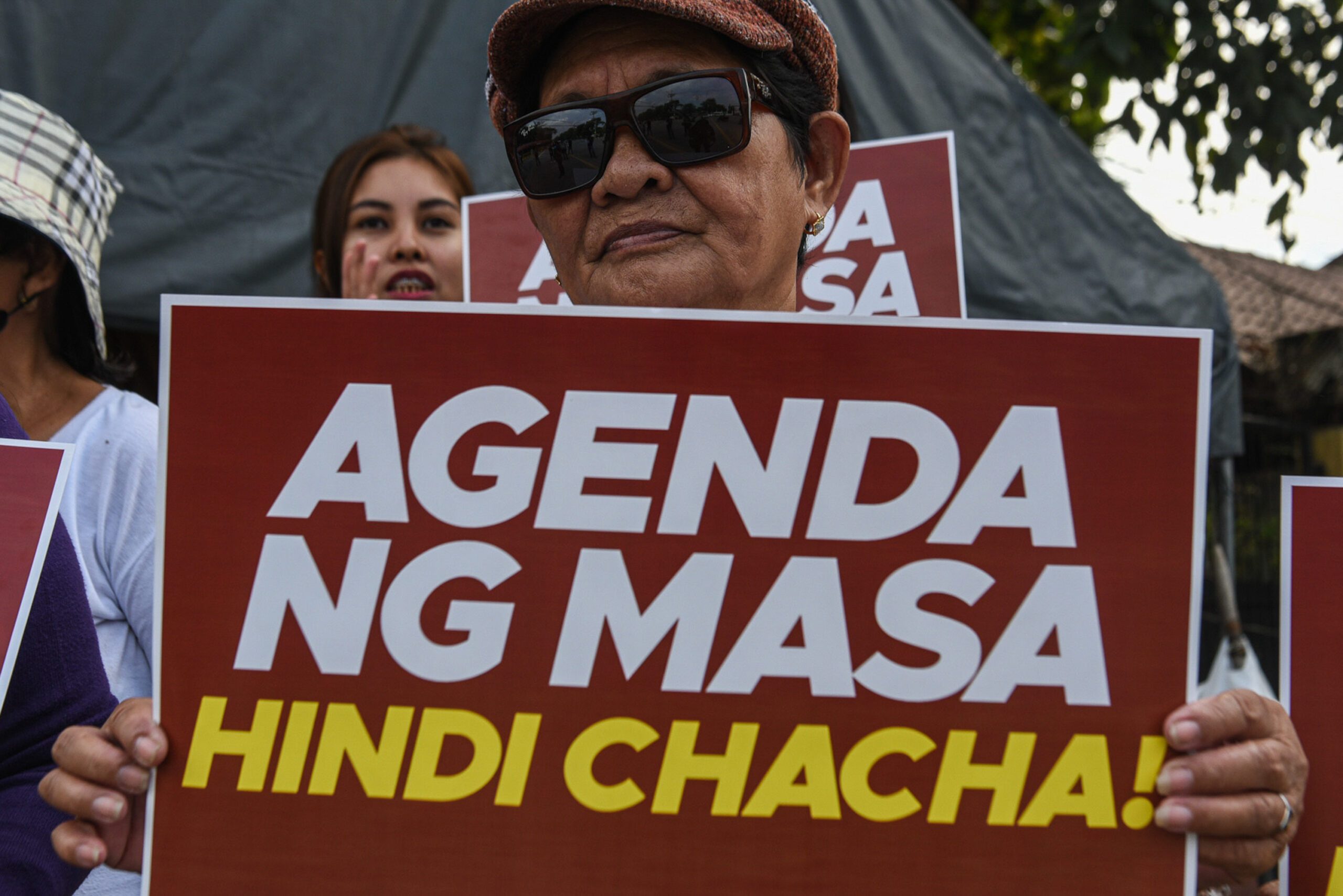SUMMARY
This is AI generated summarization, which may have errors. For context, always refer to the full article.

MANILA, Philippines – Can the House of Representatives proceed with amending the 1987 Constitution through people’s initiative (PI) without Senate approval?
Charter change has been the talk of the town since early January when signature documents began circulating nationwide. But the problem is – the legitimacy of the people’s initiative has been questioned amid allegations of bribery in securing signatures for the campaign.
The Senate was not having any of it, as on Tuesday, January 23, it released a strongly-worded manifesto rejecting the House bid for charter change. (READ: Senate unanimously rejects House push for charter change via people’s initiative)
“If this PI prospers, further changes to the Constitution can be done with or without the Senate’s approval, or worse, even absent all the senators. Should Congress vote jointly in a constituent assembly, the Senate and its 24 members cannot cast any meaningful vote against the 316 members of the House of Representatives,” Zubiri said as he read the manifesto, which was signed by all 24 senators.
A people’s initiative can only propose amendments through a petition of at least 12% of the total number of registered voters, according to Article XVII of the Constitution. The process is provided in Republic Act 6735 or the Initiative and Referendum Act.
Albay 2nd District Representative Joey Salceda claimed that the total signatures collected account for 12.1% of total registered voters. This could mean that the campaign has already collected at least eight million signatures.
End game for senators?
In a text message to Rappler, University of the Philippines professor and political analyst Ela Atienza said that if the signature campaign becomes successful, this would force both Houses to vote as one instead of two separate chambers.
Is this the end game for the senators? The answer is no.
Atienza said the next step for them is to stop and question the legality of the people’s initiative by bringing the issue to the Supreme Court.
“The Supreme Court (SC) can also rule on whether [the] House of Representatives can initiate the people’s initiative when they are elected as representatives and not their constituents. The SC can also rule on the fact that there are no programmed funds for people’s initiative this year,” she said.
Senate Minority Leader Aquilino “Koko” Pimentel III said that the upper chamber was planning to file a petition to stop the signature campaign. Pimentel said the Senate will have a “planning session” but the case was already prepared and they only have to discuss the “finishing touches.”
As refresher, the people’s initiative, if successful, would allow the House to force the Senate into convening into a Constitutional Assembly (con-ass) because the Senate is massively outnumbered, 24 vs 316. Once a con-ass is formed, lawmakers can now introduce amendments to the Constitution. To formalize the amendments, it should be ratified by Filipino voters through a plebiscite.
Before the Senate released the manifesto, the upper chamber announced that it was taking the lead in reviewing the charter just to be sure that it would cover only economic provisions. Zubiri tried to reassure those wary of charter change that if they lead, term limits would not be part of the amendments.
This seemed to be the compromise after Zubiri met with President Ferdinand Marcos Jr. and House Speaker Martin Romualdez early January. But despite the Senate agreeing with Resolution of Both Houses No. 6 (RBH6), “proposing amendments to certain economic provisions of the 1987 Constitution,” the signature campaign – believed to be led by Romualdez – is still ongoing.
This didn’t sit well with senators, prompting them to suspend RBH6. (READ: Senate, House joint resolution on Cha-Cha now suspended, says Pimentel)
“It is ridiculous that the Senate, a co-equal chamber of the House, which is needed to pass even local bills, will have a dispensable and diluted role in charter change, the most monumental act of policymaking concerning the highest law in the land,” Zubiri said. – Rappler.com
Add a comment
How does this make you feel?




![[WATCH] Bamban POGO scandal: There’s a bigger fish than Alice Guo](https://www.rappler.com/tachyon/2024/07/inside-track-tcard-bamban-pogo.jpg?resize=257%2C257&crop=435px%2C0px%2C1080px%2C1080px)
There are no comments yet. Add your comment to start the conversation.